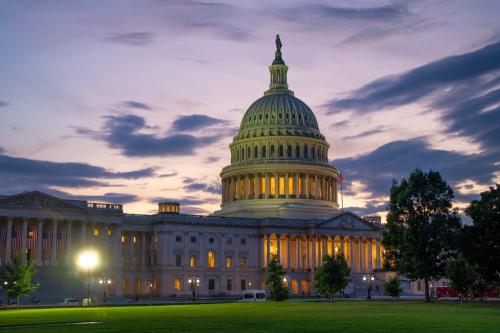Everyone loves to hate Wall Street right now. It is an article of faith, on both sides of the aisle, that there should be no more bailouts — absolutely, positively never.
The left says that banks must be small, so none is too big to fail. The right opposes any “slush fund” created for the next big bank failure, even one paid for by the banks themselves.
The problem is that, sometimes, bailouts are necessary to avoid the risk of a depression.
Tying the hands of future governments with inflexible rules and inadequate tools to respond to a financial crisis may keep our own hands clean of the bailout taint, but it could lead to grave problems. It could well force future leaders into ill-conceived actions born of deadline pressure and desperation.
Let’s not pretend that bailouts can be banned for all time. We should, instead, do what we can to avoid needing them. But we must also have the right tools for those rare moments when they may be all that stands between the nation and economic disaster.
To be clear, we come not to praise Wall Street, for there is plenty of greed and foolishness there, but to argue for crucial crisis management tools. The Treasury, the Federal Reserve Bank and other regulators must have the flexibility to act quickly and decisively in the event of another severe crisis — even if that means temporarily aiding banks.
In this financial crisis, by far the largest taxpayer costs came from the deep recession it triggered. This is the main reason the budget deficit ballooned and unemployment climbed.
It would all have been far worse without the actions of Fed Chairman Ben Bernanke, Treasury Secretary Timothy Geithner and others, including actions to shore up the banks, not only on Wall Street but also on Main Street.
In contrast, the direct costs of bailing out the banks were far lower. The bailouts will ultimately cost the Treasury about $35 billion, according to the Congressional Budget Office’s latest estimates, and almost 100 percent of that is from American International Group.
The bailout of Wall Street’s commercial and investment banks has been a net revenue raiser for taxpayers. (Fannie Mae and Freddie Mac will cost taxpayers substantial sums, but those losses were facilitated by Washington more than by Wall Street.)
The financial reform proposals now making their way through Congress could improve our regulatory system and reduce the probability of future crises. We hope, and expect, that a bill will be passed soon.
We urge, however, that it include a reliable “resolution mechanism,” to deal with large failing institutions. This mechanism must make it costly for shareholders and managers to fail and impose costs on holders of bank debt — since no one wants frequent bailouts.
But this mechanism must also give policymakers the flexibility for fast and decisive actions to avert a future widespread crisis. Failure to provide appropriate tools now would force future governments to design a response on the fly — with all the potential for disaster that we saw in our recent crisis.
Some argue that a resolution mechanism must preclude any bailout. They insist that removing government backstops would push managements, shareholders and creditors to be more conservative. Or they assert that the damage would be containable.
But this reflects a misunderstanding of the origins and consequences of severe financial crises that develop every few decades. Such crises are caused by greater factors than a belief that the government will step in. The current crisis, for example, was largely driven by massively underestimating the risks of a range of investments — particularly mortgage-backed securities.
Further, the failure of several major institutions — even in a “managed” way — can take down the whole economy.
We may hope that financial reform will prevent another crisis. But we cannot count on that.
The government must have tools that allow capital and liquidity to be injected into solvent institutions and, under extreme circumstances, into institutions perhaps marginally insolvent but salvageable.
Unfortunately, the current Senate proposals insist on far more stringent tests for whether the Fed or the FDIC could provide liquidity, virtually preclude infusions of capital and require that any extraordinary aid be used only for an orderly liquidation.
We shudder to think what damage would have been done to the economy if Citibank or Bank of America had been forced into an “orderly” liquidation, rather than helped to recover.
They certainly might not have been the only dominoes to fall — on Wall Street or Main Street.
The Brookings Institution is committed to quality, independence, and impact.
We are supported by a diverse array of funders. In line with our values and policies, each Brookings publication represents the sole views of its author(s).


Commentary
Op-edAvoid Depression, Don’t Ban Bailout
May 12, 2010